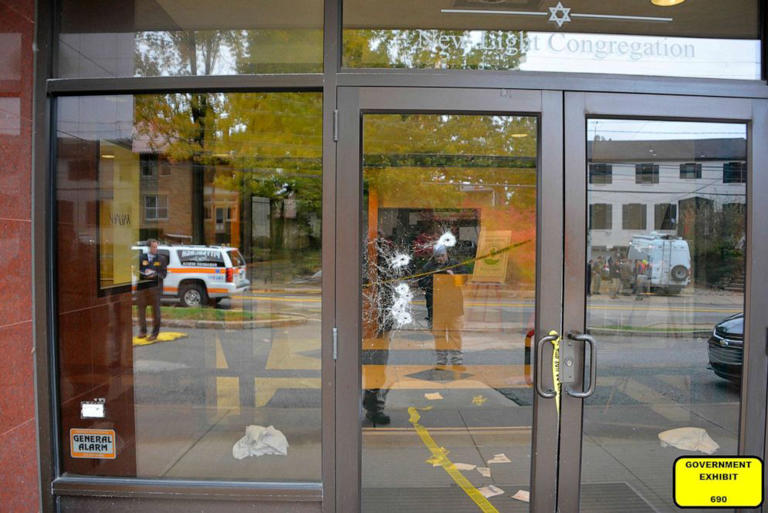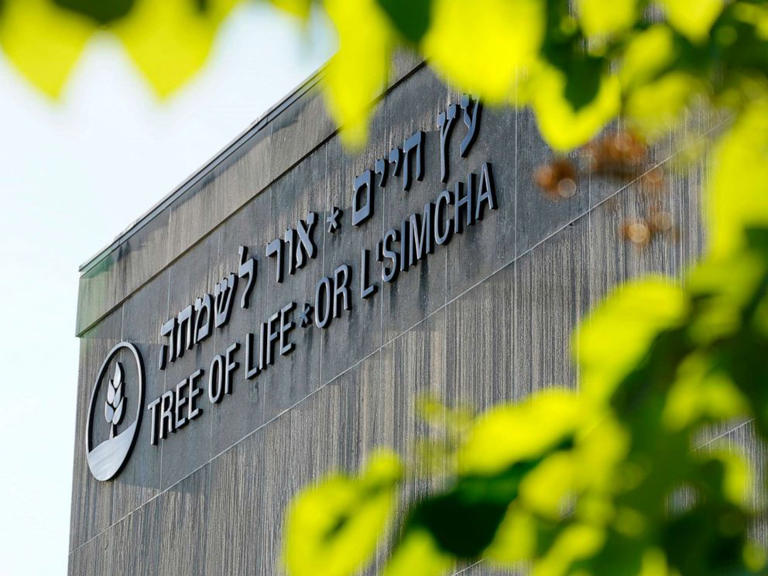Attorney John Lauro: Trump Is Being Criminalized For Objecting To The Way That 2020 Election Was Handled.
This writer ( Right or Wrong ) has decided that the Trump indictments are nothing but cover for the Biden Cartel possible crimes. I’ve decided, that after today to pretty much ignore these falsehoods. Now if there is something that’s newsworthy I’ll comment on it. But there’s so much news out there that’s news worthy. Enjoy the article below.
Trump attorney John Lauro spoke to FOX News host Bret Baier on Tuesday following the announcement of another indictment against the former president. Lauro said Trump is being criminalized for questioning whether the 2020 election was conducted in a valid way.
Lauro said when this case goes to trial, “we’re going to be representing not just President Trump, but every single American that believes in the First Amendment and believes in your ability to redress and bring grievances to Congress.”
“It’s not just issues of fraud,” Lauro said of the 2020 election. It’s also the fact that procedures were changed, undeniably so, that procedures at the state level were changed without the ability of the legislature to weigh in. And what President Trump was raising when he asked Vice President Pence to send it back to the state legislatures was to give the legislature in each state of those contested states one last chance to make a determination, because the reality is that the state legislatures in every state has the ultimate responsibility ability for qualifying electors.”
“What Mr. Trump did was exactly constitutionally precise and in order,” he added.
“Nothing was done in a way that wasn’t constitutionally permissible,” he said. “It’s all politics. It’s all politics. And if we’re criminalizing politics, what’s going to happen when the Republicans are next in office? Think about the pressure that’s going to be put on a Republican president to go after and indict sitting Democrats now in Congress or in statehouses for their political views.”
Transcript, via FOX News:
BRET BAIER, FOX NEWS ANCHOR: We need a whiteboard for all of this. It is like planes going into La Guardia with this legal situation.
But the person who’s dealing with this case joins us now. John Lauro is former President Trump’s lead attorney on this specific case. He joins us with his first public reaction.
John, thanks for being here.
JOHN LAURO, ATTORNEY FOR FORMER PRESIDENT DONALD TRUMP: Good evening.
BAIER: You heard what the special counsel said. You have read the indictment. Your client’s been talking about it quite a bit today on TRUTH Social.
Your thoughts on this?
LAURO: It’s a terribly tragic day that we find ourselves in, where political speech now has been criminalized, where an existing Justice Department, Merrick Garland, has a boss. His name is Joe Biden.
And Joe Biden is running against Donald Trump and losing currently. And now we have that Justice Department indicting President Trump for actions that he took as the executive — as the chief executive of the United States with respect to public policy matters.
So, now we have the criminalization and the weaponization of public policy and political speech by one political party over another. And it’s not surprising when it comes. It comes on the heels of unbelievable allegations against Mr. Biden and his son, as well as the fact that Donald Trump is leading in the polls right now.
And now we have what essentially is a regurgitation of the allegations in the January 6 report, which was highly political. It really reads no differently. So it’s really an astounding document, because, for the first time in American history, a former president is being prosecuted by a political opponent, who wields the power of the criminal justice system, for what he believed in and the policies and the political speech that he carried out as president.
This is unprecedented. It affects not just Donald Trump. It affects every American, who now realizes that the First Amendment is under assault. It’s under attack by the Biden administration. We now have a political incumbent who is attacking Americans for their beliefs, attacking Americans for their speech, and attacking Americans for their politics.
This has never happened in the history of our country, and it’s playing out right now.
BAIER: Yes, John, let me read from the indictment, and you can respond to this specifically.
It says: “The defendant lost the 2020 presidential election. Despite having lost, the defendant was determined to remain in power. So, more — for more than two months following the Election Day, November 3, 2020, the defendant spread lies that there had been outcome-determinative fraud in the election and that he had actually won. These claims were false, and the defendant knew that they were false, created an intense national atmosphere of mistrust and anger and eroded public faith in the administration of the election.”
LAURO: I would like them to try to prove beyond a reasonable doubt that Donald Trump believed that these allegations were false.
What did he see in real time? He saw changes in election procedure in the middle of the game being carried out by executive-level — people at the state level, election officials, but not the state legislatures.
He had an advice of counsel, a very detailed memorandum from a constitutional expert who said: Mr. President, these states are complaining about what happened. You, as the executive, have the ability to ask Vice President Pence to pause the vote on January 6, have these states audit and recertify, and, that way, we know ultimately who won the election.
And that’s the only thing that President Trump suggested. There’s nothing unlawful about that. He was entitled to do that, as the chief executive officer carrying out the laws, and nothing about that was obstructive.
It was quite interesting that Mr. Smith talked about the violence on Capitol Hill. He’s not being charged with that. There’s no allegation that President Trump incited any violence or did anything to cause any violence. Just the opposite. He’s being indicted for free speech.
He’s being indicted for objecting to the way that the 2020 election was carried out. And any American that takes that view should be equally concerned, are they next? Because the reality is that, if a president can be indicted for free speech, then anybody can be indicted.
So, when this case goes to trial, we’re going to be representing not just President Trump, but every single American that believes in the First Amendment and believes in your ability to redress and bring grievances to Congress.
And that’s exactly what people were doing. You had these alternate electors that said to the Congress: We have serious doubts about what happened in the 2020 election. We’re bringing these grievances to you. Listen to us.
That’s being criminalized now. Don’t forget, we had an extraordinary set…
BAIER: Yes.
LAURO: … of circumstances in 2020.
We had the COVID virus. We had laws being changed in the middle of the game. And Donald Trump had every responsibility and every right to raise these issues.
BAIER: To your point about what he believed, I talked to the former president a few weeks ago at his place in New Jersey about other things, but the 2020 election came up.
BAIER: You lost the 2020 election.
DONALD TRUMP, FORMER PRESIDENT OF THE UNITED STATES: Bret, you take a look at all of the stuffed ballots, you take a look at all of the things, including things like the 51 intelligence agents.
BAIER: There were recounts in all of the swing states. There was not significant, widespread fraud.
TRUMP: Bret, we’re trying to get recounts, real recounts…
(CROSSTALK)
TRUMP: … number of votes cast.
BAIER: There were investigations. Widespread corruption, there was not a sense of that.
There were lawsuits, more than 50 of them, by your lawyers, some in front of judges — judges that you appointed…
TRUMP: Bret, are you ready? Look at Wisconsin.
BAIER: … that came out with no evidence.
TRUMP: Wisconsin is — Bret, Wisconsin has practically admitted it was rigged. Other states are doing the same right now. And it’s continued on. It was a rigged election.
BAIER: There have been reviews of every potential case of voter fraud in six battleground states, and they found fewer than 475 cases. It was not affected.
TRUMP: You know why? Because they didn’t look at the right things, Bret.
BAIER: OK. Are you going to…
(END VIDEO CLIP)
BAIER: My point in showing that is that he is pushing back on June 20 on that front.
John, when it says that he knew that the election was lost and it quotes people that they have interviewed, what’s the pushback to that?
LAURO: Very easy and very simple. It’s not just issues of fraud. It’s also the fact that procedures were changed, undeniably so, that procedures at the state level were changed without the ability of the legislature to weigh in.
And what President Trump was raising when he asked Vice President Pence to send it back to the state legislatures was to give the legislature in each state of those contested states one last chance to make a determination, because the reality is that the state legislatures in every state has the ultimate responsibility ability for qualifying electors.
So, what Mr. Trump did was exactly constitutionally precise and in order. There was nothing illegal about that. And he was required to take steps as president of the United States to ensure that that election was held in a valid way.
All of that now is being criminalized. The one thing I will say, though, in 2020, Mr. Trump’s campaign had a few weeks to gear up and present evidence, and it was very difficult. We now have the ability in this case to issue our own subpoenas, and we will relitigate every single issue in the 2020 election in the context of this litigation.
It gives President Trump an opportunity that he has never had before, which is to have subpoena power since January 6 in a way that can be exercised in federal court.
BAIER: What you’re talking about, the states, the states did that. Each individual state certified the elections. They were signed by the governors, many of them Republican governors, and many of them Republican secretaries of state, that signed off and certified those election results before they came to Washington, D.C., and we had what was January 6.
LAURO: Right.
BAIER: So, what you’re talking about was done. It was certified.
LAURO: No. No, I’m sorry, but — but you’re missing what Professor Eastman’s advice was.
Professor Eastman said that the state legislatures had not opined and weighed in on the changes that had been done in those various states. And…
BAIER: But each one of those states since that time — now we’re talking about two years later — has not reopened those cases.
They have not — some of them have had audits, but they have not reopened the 2020 election from that point of view. And some of them are Republican legislatures.
LAURO: Yes. And it’s never been presented to the states.
Now what we’re going to have is not just a civil trial, but a criminal trial for Mr. Trump exercising his right to speech. So there may be disagreement about what happened, but the bottom line is, we’re now treating this as a criminal case, rather than, as we’re doing, Bret…
BAIER: Yes.
LAURO: … talking about this in the context of politics and free speech. And — and…
BAIER: Yes. Well, let’s talk about legal for just a second, John.
LAURO: Yes.
BAIER: And you are specifically running point on this case.
And according to our legal analysts…
LAURO: Oh…
BAIER: Is that true?
LAURO: Along with Todd Blanche.
BAIER: Yes.
LAURO: Yes, we’re co-counsel on it, definitely.
BAIER: On the other cases, is it legally somebody else, like, for the documents case? Are you also on that?
LAURO: I’m not on that team. I’m concentrating on the First Amendment issues. I’m concentrating on this case, which is a direct attack on our constitutional principles, only this one.
BAIER: Will you run point in Georgia, if an indictment comes down in Georgia?
LAURO: No. No.
BAIER: Somebody else.
LAURO: Absolutely. There are other groups working on that.
Obviously, there’s coordination around the country. And all of this is being done in the middle of an election season where Donald Trump is winning. So, you have a series of criminal cases that are being brought and serially brought out on a regular basis now, with only one objective in mind, and that’s to interfere in this election cycle, which is now under way.
BAIER: What about the stories that these campaign funds are now paying for legal fees and it’s — and you’re running out of cash in that front?
LAURO: Well, I’m not involved in that.
But the bottom line is, the way that they’re trying to take out Donald Trump is through the legal process. So, he’s being forced to spend money on legal defense which should be spent on the discussion of critical ideas and critical issues. People want to hear the issues. They don’t want to relitigate 2020.
And that’s exactly what the special counsel — I should say Merrick Garland. Merrick Garland and the Biden administration had to sign off on this indictment. And what they have really done is invited now a relitigation of 2020, but this time in a criminal court, which is unprecedented.
No sitting president has ever been criminally charged for his views, for taking a position. And, by the way, is there any doubt there’s two systems of justice in the United States? Was Hillary Clinton prosecuted for the Russian hoax? Were those individuals who said, don’t worry about the Biden — the Biden laptop, because it’s just Russian disinformation, are they being prosecuted?
No. Only one person in America is being prosecuted for his political beliefs. And that should send a chill, a warning to every single American who one day wants to get up and say, this is what I believe in. I disagree with the Biden administration, but these are the beliefs I have, because every person who does that now is subject to a potential criminal case.
BAIER: Last thing.
According to this indictment, they believe that that argument would empower every losing politician to do what former President Trump did, and by using what they call in this indictment false information to stir up people, that the system then breaks down.
It’s — I’m paraphrasing, but, essentially, that’s what it says in this indictment.
LAURO: So, what they’re saying is, politicians may use hyperbolic speech or excessive speech in some way and stir up people, and we’re going to criminalize that.
Good luck in the United States, if that’s where we’re heading. Good luck, because the reality is that everything that Mr. Trump requested to be done was done with the advice of counsel, was done with lawyers giving him advice. Those lawyers are going to come in and testify.
Nothing was done in a way that wasn’t constitutionally permissible. It’s all politics. It’s all politics. And if we’re criminalizing politics, what’s going to happen when the Republicans are next in office? Think about the pressure that’s going to be put on a Republican president to go after and indict sitting Democrats now in Congress or in statehouses for their political views.
And then we have this vicious circle once the criminal justice system has been politicized.



















